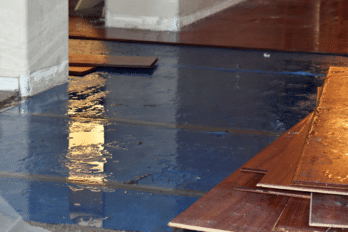
Top Things Buyers Regret After Buying a Home.
Buying a new home is often one of the most significant decisions of a person’s life, both financially and emotionally. As house prices in the UK continue to climb in many regions, an increasing number of prospective buyers are having to stretch their budgets to secure a property. This often results in feelings of doubt after the purchase, commonly known as ‘buyer’s remorse.’
While some level of regret is to be expected, recent surveys indicate that this has become a significant concern in the UK housing market, with over 50% of recent homebuyers expressing serious reservations about their decision.
In this article, we will explore the top regrets homebuyers face and provide actionable advice on how to avoid these pitfalls. We will also discuss the importance of conducting a building survey by an RICS chartered surveyor and offer a Q&A section addressing the most common questions on this topic.
1. Skipping a Comprehensive Building Survey
One of the biggest regrets many homebuyers face is skipping a comprehensive building survey. While it’s tempting to save money by forgoing a survey, the cost of repairs for hidden structural issues, dampness, mould, or faulty wiring can far exceed the initial savings. At Novello, as RICS chartered surveyors, we perform a comprehensive inspection and provide a detailed report that highlights potential issues that may not be immediately apparent. Buyers who overlook this crucial step often end up dealing with costly repairs soon after moving in. Find out more about the types of surveys we offer here (https://novellosurveyors.co.uk/surveys)
Tip: Always hire an RICS qualified surveyor to conduct a full building survey, especially when buying an older property or a property that has undergone significant renovations.
2. Underestimating Renovation Costs
Home renovation shows make DIY projects look easy and affordable, but the reality is often quite different. Buyers who underestimate the costs and time associated with renovations, such as kitchen updates, bathroom remodels, or extensions, often face financial strain and prolonged stress.
Tip: Try to get multiple quotes from contractors before buying the property to understand the potential costs. Consider adding a 10-15% contingency to your budget to cover unexpected expenses.
3. Ignoring the Neighbourhood Dynamics
While buyers may fall in love with a house, they often overlook the neighbourhood’s dynamics. The surrounding area significantly affects the living experience, issues like noise, crime rates, local amenities, and schools can make or break your satisfaction with the new home.
Tip: Visit the neighbourhood at different times of the day and week to get a real sense of the environment. Speak with potential neighbours and research crime statistics, local schools, and planned developments.
4. Not Considering Future Needs
Many homebuyers purchase a home based on their current needs, forgetting to consider their future plans. Growing families or changes in employment can all affect whether a home remains suitable over the long term.
Tip: Think about how your needs may change in the next 5-10 years. Ensure the property can accommodate those potential changes, whether it’s room to grow, proximity to good schools, or access to transportation.
5. Overlooking Home Maintenance Costs
Maintenance is a hidden cost that many buyers overlook. From maintaining the roof and heating systems to regular painting and landscaping, the costs can add up quickly.
Tip: Factor in the average yearly maintenance costs (typically 1-3% of the home’s value) when budgeting. A building survey can also give you insights into upcoming maintenance needs, allowing you to plan better.
6. Failing to Understand Property Boundaries and Covenants
Issues with property boundaries and covenants can lead to disputes with neighbours and unexpected restrictions on how you can use or modify your property.
Tip: Always review the title deeds and covenants carefully. A professional surveyor can help clarify any boundary issues or restrictive covenants that may affect your plans.
7. Being Swayed by Aesthetics Over Practicality
A well-staged home can create an emotional appeal, but it’s essential to look beyond the decor and consider the home’s practicality. Factors like storage space, layout efficiency, and room size often become regrets when buyers are caught up in the home’s aesthetics.
Tip: Evaluate the home’s layout, storage options, and the size of the rooms to ensure they meet your practical needs. Make sure to measure the spaces and bring along a checklist during viewings to stay objective.
8. Neglecting to Check the Quality of Local Schools and Amenities
For families, access to quality schools and amenities is often a significant factor. However, some buyers overlook this and later regret not choosing a location that meets their family needs.
Tip: Research school ratings and the availability of amenities like parks, shopping, healthcare, and recreational facilities. Proximity to good schools can also affect the resale value of your home.
Common Questions About Home Buying Regrets
Q: What is a building survey, and why is it important?
A: A building survey is a detailed inspection of a property’s condition, usually conducted by an RICS qualified surveyor. It identifies any major or minor defects and provides recommendations on repairs. It is especially crucial for older homes or those that have undergone substantial renovations. Skipping a building survey can result in unforeseen repair costs and safety concerns.
Q: Who is an RICS Surveyor, and why should I hire one?
A: An RICS qualified surveyor is a professional who is regulated by the Royal Institution of Chartered Surveyors (RICS). They are experts in property evaluation, capable of providing an unbiased assessment of a property’s condition. Hiring an RICS qualified surveyor ensures you receive an accurate and comprehensive survey, which can be invaluable when making a significant investment, like buying a home.
Q: How can I avoid buyer’s remorse when purchasing a new home?
A: Avoiding buyer’s remorse involves doing thorough research, being realistic about your needs and budget, and not skipping important steps like hiring a surveyor. Visiting the property multiple times, checking the neighbourhood, and understanding future maintenance costs are all critical steps to avoid common regrets.
Conclusion
Home buying is a complex process that requires careful planning and attention to detail. By understanding the common regrets that many buyers face, you can take proactive steps to ensure you don’t fall into the same traps. From conducting a thorough building survey with an RICS qualified surveyor to carefully considering future needs and maintenance costs, a mindful approach can help you avoid buyer’s remorse and enjoy your new home to the fullest.

